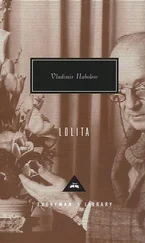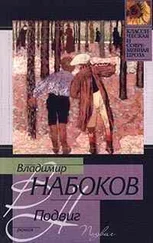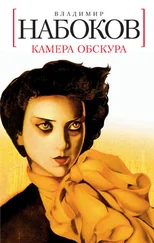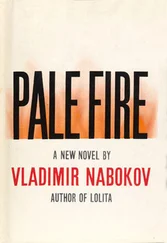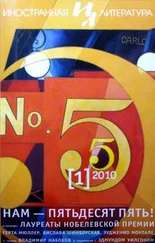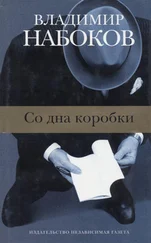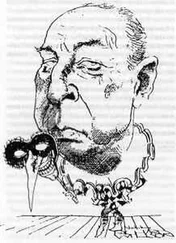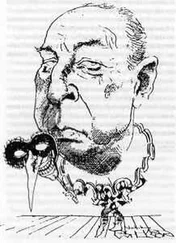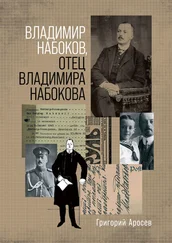Владимир Набоков - Ada, or Ador - A Family Chronicle
Здесь есть возможность читать онлайн «Владимир Набоков - Ada, or Ador - A Family Chronicle» весь текст электронной книги совершенно бесплатно (целиком полную версию без сокращений). В некоторых случаях можно слушать аудио, скачать через торрент в формате fb2 и присутствует краткое содержание. Жанр: Классическая проза, Современные любовные романы, на английском языке. Описание произведения, (предисловие) а так же отзывы посетителей доступны на портале библиотеки ЛибКат.
- Название:Ada, or Ador: A Family Chronicle
- Автор:
- Жанр:
- Год:неизвестен
- ISBN:нет данных
- Рейтинг книги:3 / 5. Голосов: 1
-
Избранное:Добавить в избранное
- Отзывы:
-
Ваша оценка:
- 60
- 1
- 2
- 3
- 4
- 5
Ada, or Ador: A Family Chronicle: краткое содержание, описание и аннотация
Предлагаем к чтению аннотацию, описание, краткое содержание или предисловие (зависит от того, что написал сам автор книги «Ada, or Ador: A Family Chronicle»). Если вы не нашли необходимую информацию о книге — напишите в комментариях, мы постараемся отыскать её.
Ada, or Ador: A Family Chronicle — читать онлайн бесплатно полную книгу (весь текст) целиком
Ниже представлен текст книги, разбитый по страницам. Система сохранения места последней прочитанной страницы, позволяет с удобством читать онлайн бесплатно книгу «Ada, or Ador: A Family Chronicle», без необходимости каждый раз заново искать на чём Вы остановились. Поставьте закладку, и сможете в любой момент перейти на страницу, на которой закончили чтение.
Интервал:
Закладка:
Vladimir Nabokov
Ada, or Ardor: A Family Chronicle
to Véra
With the exception of Mr and Mrs Ronald Oranger, a few incidental figures, and some non-American citizens, all the persons mentioned by name in this book are dead.
[Ed.]
Part One
1
‘All happy families are more or less dissimilar; all unhappy ones are more or less alike,’ says a great Russian writer in the beginning of a famous novel (Anna Arkadievitch Karenina, transfigured into English by R.G. Stonelower, Mount Tabor Ltd., 1880). That pronouncement has little if any relation to the story to be unfolded now, a family chronicle, the first part of which is, perhaps, closer to another Tolstoy work, Detstvo i Otrochestvo (Childhood and Fatherland, Pontius Press, 1858).
Van’s maternal grandmother Daria (‘Dolly’) Durmanov was the daughter of Prince Peter Zemski, Governor of Bras d’Or, an American province in the Northeast of our great and variegated country, who had married, in 1824, Mary O’Reilly, an Irish woman of fashion. Dolly, an only child, born in Bras, married in 1840, at the tender and wayward age of fifteen, General Ivan Durmanov, Commander of Yukon Fortress and peaceful country gentleman, with lands in the Severn Tories (Severnïya Territorii), that tesselated protectorate still lovingly called ‘Russian’ Estoty, which commingles, granoblastically and organically, with ‘Russian’ Canady, otherwise ‘French’ Estoty, where not only French, but Macedonian and Bavarian settlers enjoy a halcyon climate under our Stars and Stripes.
The Durmanovs’ favorite domain, however, was Raduga near the burg of that name, beyond Estotiland proper, in the Atlantic panel of the continent between elegant Kaluga, New Cheshire, U.S.A., and no less elegant Ladoga, Mayne, where they had their town house and where their three children were born: a son, who died young and famous, and a pair of difficult female twins. Dolly had inherited her mother’s beauty and temper but also an older ancestral strain of whimsical, and not seldom deplorable, taste, well reflected, for instance, in the names she gave her daughters: Aqua and Marina (‘Why not Tofana?’ wondered the good and sur-royally antlered general with a controlled belly laugh, followed by a small closing cough of feigned detachment — he dreaded his wife’s flares).
On April 23, 1869, in drizzly and warm, gauzy and green Kaluga, Aqua, aged twenty-five and afflicted with her usual vernal migraine, married Walter D. Veen, a Manhattan banker of ancient Anglo-Irish ancestry who had long conducted, and was soon to resume intermittently, a passionate affair with Marina. The latter, some time in 1871, married her first lover’s first cousin, also Walter D. Veen, a quite as opulent, but much duller, chap.
The ‘D’ in the name of Aqua’s husband stood for Demon (a form of Demian or Dementius), and thus was he called by his kin. In society he was generally known as Raven Veen or simply Dark Walter to distinguish him from Marina’s husband, Durak Walter or simply Red Veen. Demon’s twofold hobby was collecting old masters and young mistresses. He also liked middle-aged puns.
Daniel Veen’s mother was a Trumbell, and he was prone to explain at great length — unless sidetracked by a bore-baiter — how in the course of American history an English ‘bull’ had become a New England ‘bell.’ Somehow or other he had ‘gone into business’ in his twenties and had rather rankly grown into a Manhattan art dealer. He did not have — initially at least — any particular liking for paintings, had no aptitude for any kind of salesmanship, and no need whatever to jolt with the ups and downs of a ‘job’ the solid fortune inherited from a series of far more proficient and venturesome Veens. Confessing that he did not much care for the countryside, he spent only a few carefully shaded summer weekends at Ardis, his magnificent manor near Ladore. He had revisited only a few times since his boyhood another estate he had, up north on Lake Kitezh, near Luga, comprising, and practically consisting of, that large, oddly rectangular though quite natural body of water which a perch he had once clocked took half an hour to cross diagonally and which he owned jointly with his cousin, a great fisherman in his youth.
Poor Dan’s erotic life was neither complicated nor beautiful, but somehow or other (he soon forgot the exact circumstances as one forgets the measurements and price of a fondly made topcoat worn on and off for at least a couple of seasons) he fell comfortably in love with Marina, whose family he had known when they still had their Raduga place (later sold to Mr Eliot, a Jewish businessman). One afternoon in the spring of 1871, he proposed to Marina in the Up elevator of Manhattan’s first ten-floor building, was indignantly rejected at the seventh stop (Toys), came down alone and, to air his feelings, set off in a counter-Fogg direction on a triple trip round the globe, adopting, like an animated parallel, the same itinerary every time. In November 1871, as he was in the act of making his evening plans with the same smelly but nice cicerone in a café-au-lait suit whom he had hired already twice at the same Genoese hotel, an aerocable from Marina (forwarded with a whole week’s delay via his Manhattan office which had filed it away through a new girl’s oversight in a dove hole marked RE AMOR) arrived on a silver salver telling him she would marry him upon his return to America.
According to the Sunday supplement of a newspaper that had just begun to feature on its funnies page the now long defunct Goodnight Kids, Nicky and Pimpernella (sweet siblings who shared a narrow bed), and that had survived with other old papers in the cockloft of Ardis Hall, the Veen-Durmanov wedding took place on St Adelaida’s Day, 1871. Twelve years and some eight months later, two naked children, one dark-haired and tanned, the other dark-haired and milk-white, bending in a shaft of hot sunlight that slanted through the dormer window under which the dusty cartons stood, happened to collate that date (December 16, 1871) with another (August 16, same year) anachronistically scrawled in Marina’s hand across the corner of a professional photograph (in a raspberry-plush frame on her husband’s kneehole library table) identical in every detail — including the commonplace sweep of a bride’s ectoplasmic veil, partly blown by a parvis breeze athwart the groom’s trousers — to the newspaper reproduction. A girl was born on July 21, 1872, at Ardis, her putative father’s seat in Ladore County, and for some obscure mnemonic reason was registered as Adelaida. Another daughter, this time Dan’s very own, followed on January 3, 1876.
Besides that old illustrated section of the still existing but rather gaga Kaluga Gazette, our frolicsome Pimpernel and Nicolette found in the same attic a reel box containing what turned out to be (according to Kim, the kitchen boy, as will be understood later) a tremendous stretch of microfilm taken by the globetrotter, with many of its quaint bazaars, painted cherubs and pissing urchins reappearing three times at different points, in different shades of heliocolor. Naturally, at a time one was starting to build a family one could not display very well certain intérieurs (such as the group scenes in Damascus starring him and the steadily-smoking archeologist from Arkansas with the fascinating scar on his liver side, and the three fat whores, and old Archie’s premature squitteroo, as the third male member of the party, a real British brick, drolly called it); yet most of the film, accompanied by purely factual notes, not always easy to locate — because of the elusive or misleading bookmarks in the several guidebooks scattered around — was run by Dan many times for his bride during their instructive honeymoon in Manhattan.
Читать дальшеИнтервал:
Закладка:
Похожие книги на «Ada, or Ador: A Family Chronicle»
Представляем Вашему вниманию похожие книги на «Ada, or Ador: A Family Chronicle» списком для выбора. Мы отобрали схожую по названию и смыслу литературу в надежде предоставить читателям больше вариантов отыскать новые, интересные, ещё непрочитанные произведения.
Обсуждение, отзывы о книге «Ada, or Ador: A Family Chronicle» и просто собственные мнения читателей. Оставьте ваши комментарии, напишите, что Вы думаете о произведении, его смысле или главных героях. Укажите что конкретно понравилось, а что нет, и почему Вы так считаете.

